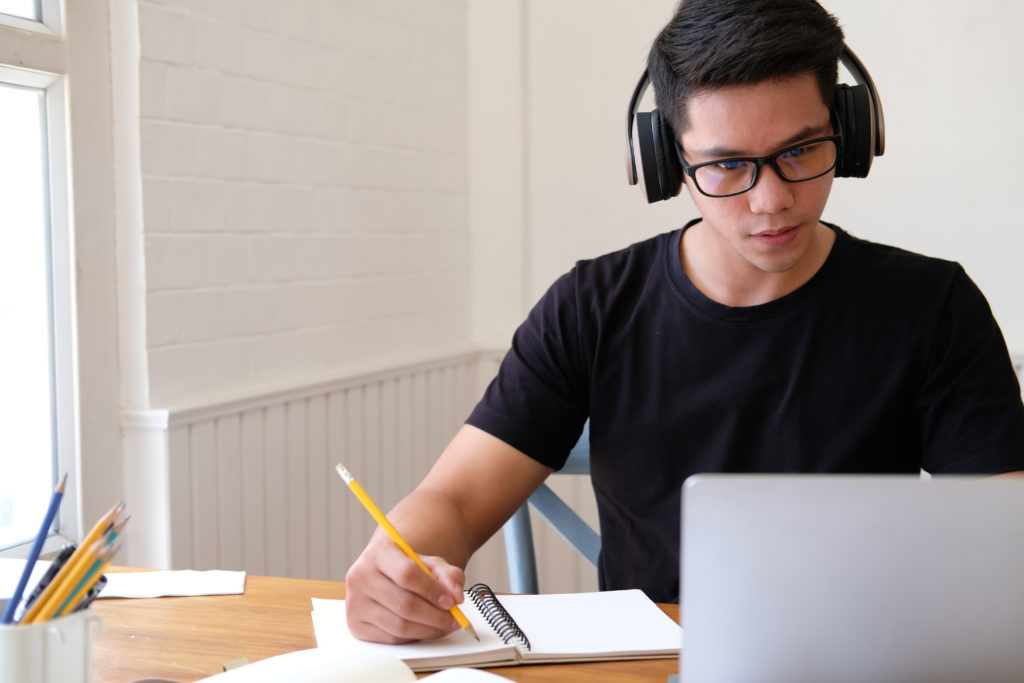Quick Hits
Daily brief research updates from the cognitive sciences

Studying online
We’d all like to be able to learn easily. Read something and remember it, listen in on a call and never forget anything, but we all know, well the vast majority of us, that it isn’t always that easy. Over the years and decades many practises have also been developed to help learning, ranging from learning in your sleep to meditative methods. But do these really help?
Well, this is what Shana Carpenter et al. of Iowa State University wanted to find out. To do this they reviewed and analysed over 200 studies ranging over 100 years to find some clear answers. And the results?
The results show that basically two strategies are the most effective and therefore the most important.
These are not sexy new techniques – in fact quite boring. They are spacing and retrieval practice. That’s it!
Spacing is the concept of spacing learning out into more bite-sized chunks. For example, in one study medical students received training on surgery training over three weeks vs. one intensive day. Those in the spaced learning group performed better one week after training had finished but also, importantly, one year later.
I have reviewed spaced, or punctuated, learning previously. I have also reported on brain processes and fatigue during mini learning and break phases (here and here).
The second technique is also a low tech, old-fashioned, and effortful: the technique of learning retrieval. This simply means trying to remember what you have learned. This is the high effort version and probably the one we also try to avoid, particularly when by ourselves. This is more effective than the easy method which is just rereading your notes or the textbook again. The important part seems to be the active retrieval part, actually making an effort to get it out again.
So, this on one hand is a bit boring, no new sexy techniques. It is also really important – two simple techniques will improve learning for anyone and anyone can do it!
So, if learning something new, space it out it bite-sized chunks, and make an effort to remember what you covered and learned.
That’s it, that simple.
Now let’s see if I can remember what I have just written…

Andy Habermacher
Andy is author of leading brains Review, Neuroleadership, and multiple other books. He has been intensively involved in writing and research into neuroleadership and is considered one of Europe’s leading experts. He is also a well-known public speaker, speaking on the brain and human behaviour.
Andy is also a masters athlete (middle distance running) and competes regularly at international competitions (and holds a few national records in his age category).
References
Shana K. Carpenter, Steven C. Pan, Andrew C. Butler.
The science of effective learning with spacing and retrieval practice.
Nature Reviews Psychology, 2022; 1 (9): 496
DOI: 10.1038/s44159-022-00089-1
More Quick Hits
Learning at double-speed?
Quick HitsDaily brief research updates from the cognitive sciences ouldn’t it be great if we could learn things double speed? Well, maybe we can. At least according to a study out of the University of California. During the pandemic many...
The “drunken monkey” hypothesis – proven
This had to be a story I covered – monkeys and alcohol sounds too good to pass up. But this is also linked to the “drunken monkey” hypothesis: that humans developed their love for alcohol in earlier primitive times accidentally, and then intentionally, eating fruit...
The Newly Discovered Bias That Makes Us Think We Are More Diverse Than We Are
A few weeks ago I reported on some newly discovered ways we are biased namely that we consider generic terms such as “people” as equivalent to “men” rather than men and women. This was specifically focused on gender bias but this latest piece recently published shows...
Self-awareness of autism leads to better quality of life
Autism has become a well-known diagnosis in recent years. Though some people seem to be against this sort of labelling, and the general increase in different label of mental conditions, a study out of the University of Portsmouth shows why this is actually a good...
Optimal sleep improves your brain, mental, and physical health - and it’s not as much as you think
I’ve reported multiple times on sleep and how it affects just about everything form cognitive performance, to brain plasticity, to physical performance, to mental health, and to metabolism. The question...
No change for a century – children’s backgrounds still predict the same educational outcomes
Educational opportunities have changed dramatically for children over the last century – schools have changed, and college and university admissions have grown. Or so we might think at least. But according to a study out of the University of York, that is not the...






